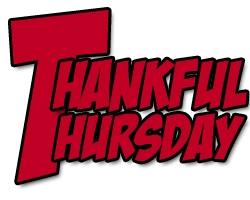A major sporting event took place this weekend.
No, I am not referring to March Madness. And I don’t mean Major League Baseball’s Opening Day.
I am talking about the U.S. Memory Championship, which took place in New York on Saturday. I know you are probably thinking this is an early April fools post and that I am going to tell you the Memory Championship is televised on ESPN Ocho.
But I am not kidding around, this is a real contest. And apparently it has been around for 17 years.
I had never heard of the U.S. Memory Championship until this weekend (or maybe I had and just didn’t remember), but I find it very interesting.
The competition takes place in one 10-hour long contest and features four categories.
The first contest requires the competitors to memorize names and faces. The players are asked to memorize a number of pictures with corresponding names. From there they must take all of the names and correctly match them up with the right photos. And they have to get them all correct. One mistake eliminates them from the contest.
In the second category, the remaining players are given five minutes to memorize a series of numbers that randomly generate on a computer screen. They are then asked to recite the numbers in order. Again, one mess up and they are out.
If they advance to the third round, players must quickly memorize and recite poetry verses, words, and recall personal information given to them on the spot about a stranger. In case you haven’t figured out how this works…one mistake and they are eliminated (this is how I picture the eliminations).
Once the field has been cut down to three, the remaining contestants are given a deck of cards that has been mixed in a random order. They have five minutes to memorize the order of the entire deck. Whoever can last the longest in reciting the sequence of the cards is crowned the winner!
This year’s champion is a 28 year old named Nelson Dellis.
Dellis, who claimed his third U.S. Memory Championship crown on Saturday, says he was inspired to improve his memory after seeing his grandmother suffer from Alzheimer’s.
How has Dellis developed an extraordinary memory, you ask? By doing ordinary things such as:
- memorizing grocery lists
- memorizing names of people he meets
- eating foods rich in omega 3, like fish
- and staying active
Dellis say there is nothing magical about how he went from an average dude to a memory champ.
I myself am a 28 year old and an average dude, and I find it encouraging to know that the way to improve my memory is not too different from many of the other things we talk about on this blog.
Whether it is improving our writing, growing our confidence or upgrading our memory, we can fine tune our skills simply by working on them a little at a time. We may not be able to win the U.S. Memory Championship after one day’s work. But if we work on it little by little, who knows what could happen.


 (Click the image above for more Thankful Thursday posts)
(Click the image above for more Thankful Thursday posts)



